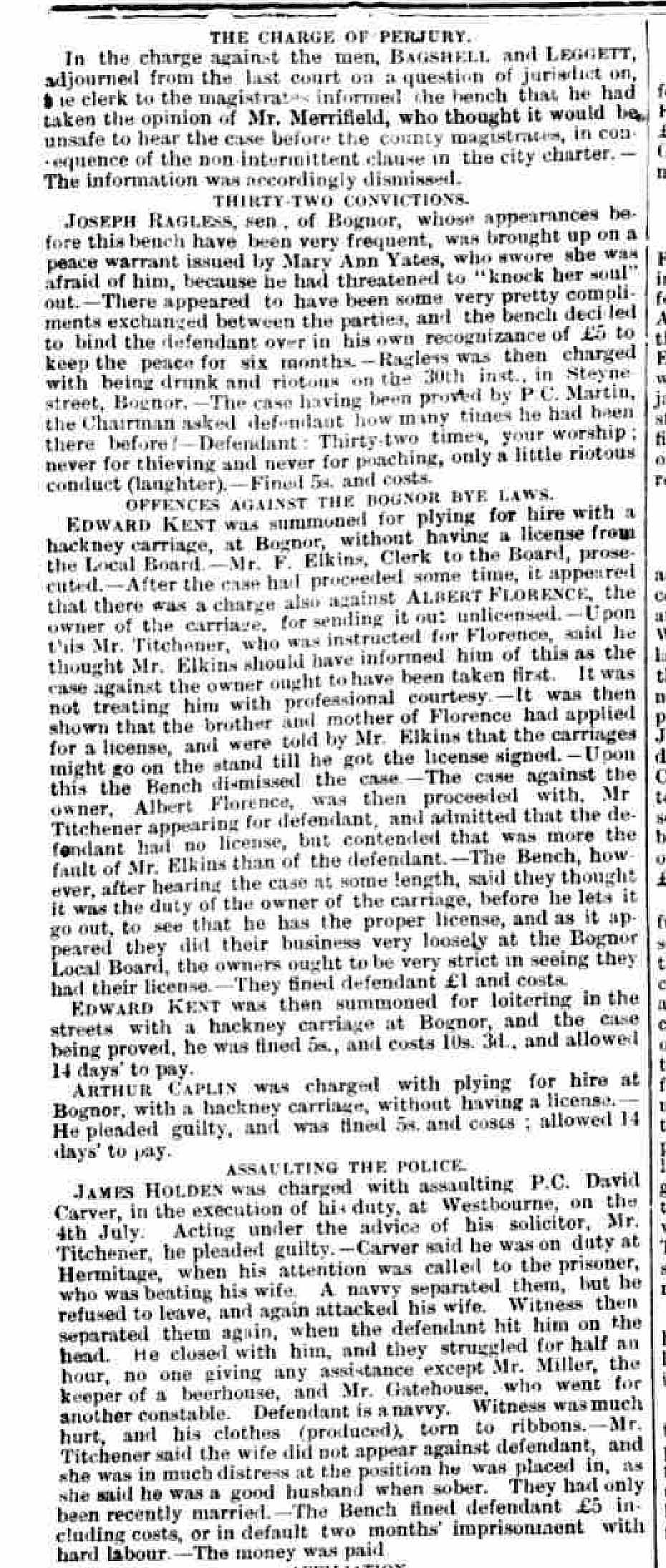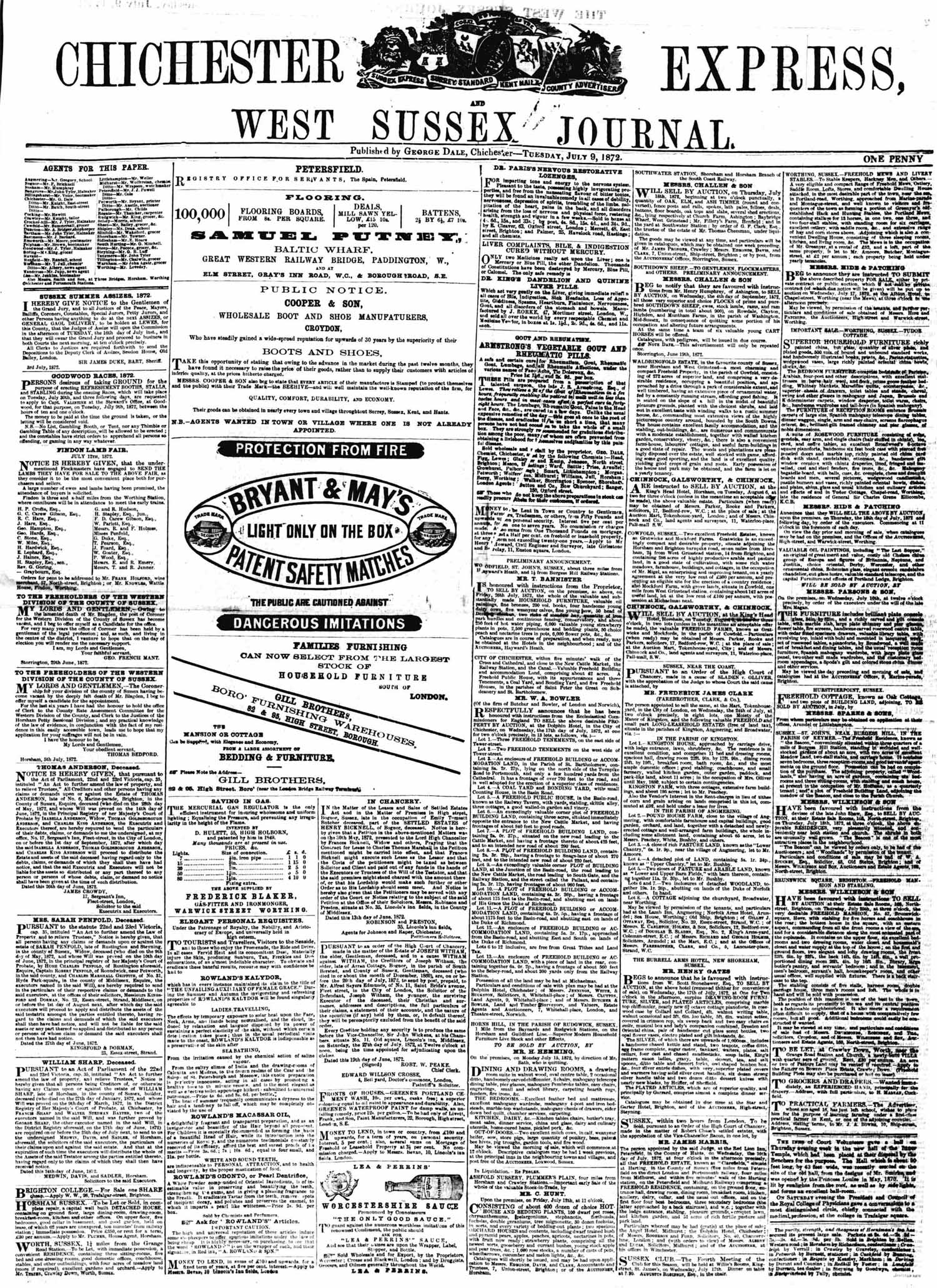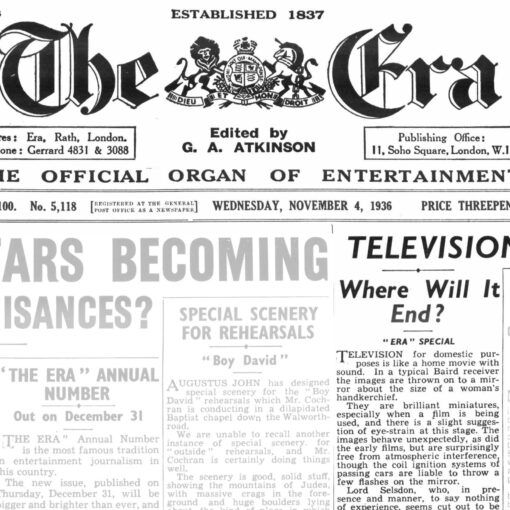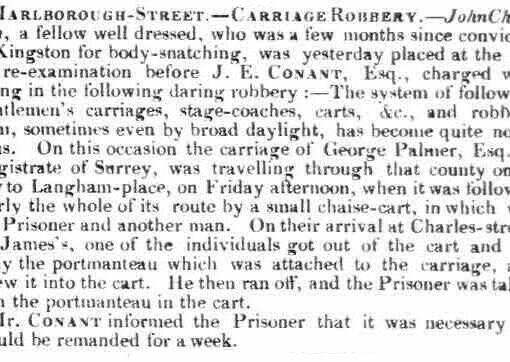Chichester Express and West Sussex Journal – Tuesday 09 July 1872

THE CHARGE OF PERJURY.
In the charge against the men, Basschell and Leggett, adjourned from the last court on a question of jurisdiction, the clerk to the magistrates informed the bench that he had taken the opinion of Mr. Merrifield, who thought it would be unsafe to hear the case before the county magistrates, in consequence of the non-intermittent clause in the city charter. The information was accordingly dismissed.
THIRTY-TWO CONVICTIONS.
Joseph Ragles, son of Bognor, whose appearances before this bench have been very frequent, was brought up on a peace warrant issued by Mary Ann Yates, who swore she was afraid of him because he had threatened her and her mother. There appeared to have been some very pretty compliments exchanged between the parties, and the bench decided to bind the defendant over in his own recognizance and order him to keep the peace for six months. He was further charged with being drunk and riotous on the 4th inst., in Stevens Street, Bognor. The case, having been proved by P.C. Martin, the chairman asked the defendant how many times he had been there before. Defendant: “Thirty-two times, your worship; never for thieving and never for poaching, only a little riotous conduct (laughter).” Fined 5s. and costs.
OFFENCES AGAINST THE BOGNOR BYE-LAWS.
Edward Kent was summoned for plying for hire with a hackney carriage at Bognor, without having a licence from the Local Board. Mr. F. Elkins, Clerk to the Board, prosecuted. After the case had proceeded for some time, it appeared that there was a charge against Albert Florence, the owner of the carriage, for sending it out unlicensed. Upon this, Mr. Titchener, who was instructed for Florence, said he thought Mr. Elkins should have informed him of this case against the owner before it had been taken first. It was not treating him with professional courtesy. It was then shown that the brother and mother of Florence had applied for a license and were told by Mr. Elkins that the carriage might go on the stand till he got the license signed. Upon this, the Bench dismissed the case. The case against the owner, Albert Florence, was then proceeded with. Mr. Titchener, appearing for the defendant, admitted that the defendant had no licence but contended that this was more the fault of Mr. Elkins than of the defendant. The Bench, however, after hearing the case at some length, said they thought it was the duty of the owner of the carriage, before he let it go out, to see that he had the proper licence, and as it appeared they allowed their business very loosely at the Bognor Local Board, the owners ought to be very strict in seeing they had their licence. They fined the defendant £1 and costs.
Edward Kent was then summoned for loitering in the street with a hackney carriage at Bognor, and the case being proved, he was fined 5s. and costs 10s. 3d. and allowed 14 days to pay.
Arthur Caplin was charged with plying for hire at Bognor with a hackney carriage, without having a licence. He pleaded guilty and was fined 5s. and costs; allowed 14 days to pay.
ASSAULTING THE POLICE.
James Holden was charged with assaulting P.C. David Carver, in the execution of his duty, at Westbourne, on the 4th July. Acting under the advice of his solicitor, Mr. Titchener, he pleaded guilty. Carver said he was on duty at the Hermitage, when his attention was called to the prisoner, who was beating his wife. A navvy separated them, but he refused to leave, and again attacked his wife. Witness then separated them again, when the defendant hit him on the head. He closed with him, and they struggled for half an hour, no one giving any assistance except Mr. Miller, the keeper of a beer house, and Mr. Gatehouse, who went for another constable. Defendant is a navvy. Witness was much hurt, and his clothes produced, torn to ribbons. Mr. Titchener said the wife did not appear against the defendant, and she was in much distress at the position he was placed in, as she said he was a good husband when sober. They had only been recently married. The Bench fined the defendant £5 including costs, or in default two months imprisonment with hard labour. The money was paid.

-
- The dismissal of the perjury charge highlights procedural intricacies. The reference to the “non-intermittent clause” in the city charter indicates jurisdictional limitations within Chichester at the time.
- Recurring Offenders and Behavioural Patterns:
- Joseph Ragles’ case illustrates a pattern of minor public disorder offences, emphasizing societal concerns about public behaviour in late Victorian times. His defence, asserting no involvement in thieving or poaching, paints a picture of a man who viewed his conduct as relatively harmless.
- Municipal Regulations:
- The cases involving Edward Kent and hackney carriage licensing reveal the growing regulation of transport services, reflecting evolving local governance and commercial accountability during this era.
- Domestic Violence and Policing Challenges:
- James Holden’s case is a sobering example of domestic violence and police intervention in 19th-century England. The details underline the physical challenges faced by constables, as well as societal attitudes toward domestic disputes.
Disorder, Licenses, and Justice: Uncovering Victorian Bognor’s Courtroom Drama from 1872 🕰️⚖️ #History #VictorianEra #Bognor”#LegalHistory #SocialHistory #VictorianCrime #FamilyHistory #Genealogy #19thCentury #BognorRegis #HistoricalResearch



